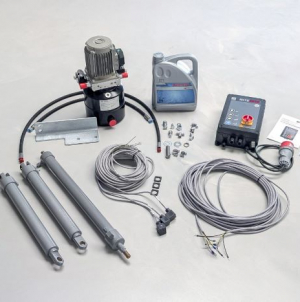-
Rite-Hite unveils new range of hydraulic kits to upgrade and extend dock leveller performance - 1 day ago
-
REWE and Cimcorp automate fresh supply chain for Berlin supermarkets and stores - 1 day ago
-
Q1 – A recovery period or time to fix, switch and scale? - 1 day ago
-
NULOGY’S SHOP FLOOR SOFTWARE TO POWER COMPLETE CO-PACKING’SOPERATIONS - February 13, 2026
-
Why lead generation depends upon good content - February 13, 2026
-
Wallapop and Albatross Sign Strategic Partnership to Bring Real-Time AI Discovery to the Future of Consumer-to-Consumer Commerce - February 12, 2026
-
Thorworld ramp helps Hubergroup to streamline its unloading operation - February 6, 2026
-
TRACKER INNOVATION FROM QUECLINK TO BOOST STOLEN VEHICLE RECOVERY PERFORMANCE - February 4, 2026
-
Flexi Narrow Aisle hits 50! - January 29, 2026
-
DERRY BROS ATTRACTS RECORD NUMBERS OF FREIGHT CUSTOMERS SEEKING CUSTOMS SUPPORT - January 29, 2026
Logistics pays more than any other sector in health and safety fines in local authority enforced cases.
·Local authority fines rise by 1,870% in a year
·New sentencing guideline causes sharp rise in local authority fines
London, 31 July, 2017: The logistics sector was levied with 32% of all health and safety fines in cases prosecuted by local authorities this year, according to a research report from global law firm Clyde & Co.
Data obtained directly from over 300 local authorities shows that the logistics sector paid £4.8m in fines due to breaches of health and safety law in the first year of the new sentencing guideline (year ending 31 January 2017).
Clyde & Co explains that new sentencing guidance introduced on the 1st of February 2016 toughened penalties for health and safety and corporate manslaughter offences. Under the new approach, the scale of fines varies according to the turnover of the company but can exceed £20m for the very worst cases involving corporate manslaughter, and potentially more for the largest companies.
The total sum collected in fines across all sectors from the local authority last year rose to £15.2m last year, up from £0.8m in the previous 12 months – a 1,870% increase.
Clyde & Co explains that the Health and Safety Executive (HSE) has enforcement oversight of ‘higher risk sectors’ including construction and manufacturing. While local authorities are responsible for the enforcement of ‘lower risk sectors’, such as retail, leisure, hospitality, care, catering, warehousing and office space.
Rhian Greaves, Head of Compliance & Strategic Support in Clyde & Co’s Safety, Health & Environment team, comments: “Health & Safety is now a top priority for the boardroom. Our research confirms what we have been seeing in practice – the new sentencing guidelines are biting hard.”
“The percentage increase in fines in the local authority enforced sectors is staggering. While relatively few prosecutions have been pursued in the first year of the guideline, the cases that have passed through the courts have reinforced the dramatic effect the new sentencing regime is having on defendant organisations. Although 83% of councils took no prosecutions at all, we know that local authorities have a 95% conviction rate when they do take action so the consequences of receiving a summons are considerable.”
Clyde & Co says that the range of fines imposed by local authorities on the logistics sector was huge – from £10,000 to £2.2m. This was imposed on Decco Limited following a fatal fall from height at its Buckinghamshire warehouse.
Rhian Greaves continues: “The first year of the Guideline has seen logistics organisations fined more than six times as much as the total figure for all local authority cases in the previous year. The myriad of risks presented by distribution centres places them at the top of the local authorities’ agendas as they seek to regulate arguably the highest risk industry within their jurisdiction.”
“Good health and safety management is morally right. It also makes good business sense. If prosecuted, larger retailers face significant fines as the courts continue to grapple with what constitutes a ‘very large’ organisation. When the potential brand damage is added to the cost of the fine, the ramifications of health and safety failures are now major business risks.”
Logistics sector paid the highest in local authority fines
Key statistics:
· Total fines collected by local authorities from the logistics sector in 2016/17: £4,795,000
· Total fines collected by local authorities in 2016/17: £15,150,664
· Total fines collected by local authorities in 2015/16: £768,883

































